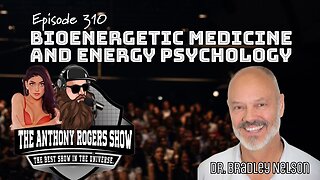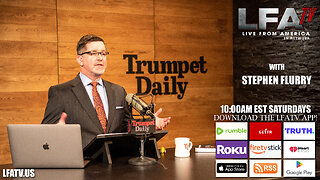47th session. 4-17-24. FUNDAMENTALS OF READING THE BIBLE
NOTES ON THE 4-17-24 CLASS
LAST EDITED 4-27-24 0601 HST
>> Special thanks to Doug Thompson for his outstanding contributions to yet another class.
>> This class was a continuation of the 3-6-2024 and 4-3-2024 classes on the error of translating "Gehenna" into English as "hell" and the origins of the concept of eternal damnation in Christianity. We also took a close look at certain aspects of the Parable of the Wheat and Tares from Matthew 13. These three classes together are supremely important. In my opinion there is no way that one can really understand the Bible as a whole or the teachings of Jesus in particular without understanding the issues presented in these three classes.
>> From 40:10 to 46:25, the confusion with regards to the Greek word for “reapers” was due to a typo by Doug resulting in his looking at a different word in Strong’s Concordance. Doug was looking at 2322, therapeia, which means “attention or medical service” and is related to 2323 (therapeuó, to serve or cure) and 2324 (therapón, an attendant). The Greek word at Matthew 13:30 is the plural of 2327, theristés, which means “reaper or harvester” and is related to 2326 (therismos, harvest or reaping) and 2325 (therizó, to reap, harvest, or gather).
See https://biblehub.com/greek/2322.htm
See https://biblehub.com/greek/2327.htm
>> The fact that I refer to Professor Bart Ehrman’s work does not mean that I agree with all of his conclusions. It only means that I think he presents important facts and analyses. Since he’s an atheist and I’m a believer, it should be obvious that I think he misunderstands the life and teachings of Jesus, the Bible as a whole, and metaphysical reality.
CORRECTIONS TO MY STATEMENTS AT THE 4-17-24 CLASS
LAST EDITED 4-27-24 0553 HST
>> At 8:29 to 8:32 “middle decades” was meant to be “middle centuries.”
>> There was a brief audio failure at 1:21:37-39. What I said was “the truth that could set us free.”
>> At 1:29:05 and 1:29:14, “1944” should have been “1994”.
>> At 1:46:22 to 1:46:35, I should have added “in the Roman Catholic west” to the statement “I think that up until Martin Luther the movement that Jesus started really had been almost snuffed out.” I’m not qualified to comment on conditions in the Eastern Orthodox lands and other lands on the geographical fringes of Christianity beyond the power of the Roman church.
>> See below for a correction to my comments on the story in one of the Upanishads.
ADDITIONAL REFERENCES FOR THE 4-17-24 CLASS
LAST EDITED 4-27-24 0553 HST
>> The Wikipedia article on the apocryphal document that Doug mentioned is at https://en.wikipedia.org/wiki/Apocalypse_of_Peter
>> Information on Professor Bart D. Ehrman and his work can be found at:
https://www.bartehrman.com/barts-biography/
https://religion.unc.edu/_people/full-time-faculty/ehrman/
https://en.wikipedia.org/wiki/Bart_D._Ehrman
>> The collaborative project that I mentioned, by the editors of Hinduism Today and Christianity Today, can be seen at
https://www.hinduismtoday.com/magazine/june-1994/1994-06-a-point-counterpoint-of-hindu-and-christian-beliefs/
https://www.christianitytoday.com/ct/1993/february-8/special-report-hinduism-gains-foothold-in-america.html
>> From 1:35:00 to 1:36:36 and later, the story to which I referred is found at the third and fourth khandas (sections) of the Kena Upanishad. This is one of probably countless passages from Hinduism that set forth the monotheistic aspect of Hinduism. The lesser gods in that parable are Agni, Vayu, and Indra, not the Hindu trimurti (or trinity) of Brahma, Vishnu, and Shiva. Christians should recognize that parable in the Kena Upanishad as a Hindu equivalent of John 15:1-8, the initial verses of the most important chapter in the New Testament.
>> From 1:36:45 to 1:37:15 “You are gods” is quoted by Jesus at John 10:34-35. He was quoting Psalm 82:6.
>> For those who are interested in the Hindu scriptures, I recommend starting with the major Upanishads. For those who read the major Upanishads, I recommend starting with the translation by Eknath Easwaran.
>> Note with regards to the Hindu deities: Brahman, the supreme creator god, is the equivalent of Yahweh or God the Father in the Bible. Brahman should not be confused with Brahma, one of the lesser deities.
>> The longer video featuring professor Ehrman, "The History of Heaven and Hell," is at https://www.youtube.com/watch?v=uxqHIauZCaQ
>> The related shorter video (which Doug told us is by one of Ehrman’s students) “I traveled to Jerusalem to face my fear of hell,” is at https://www.youtube.com/watch?v=MGvcRnlId4k
-
 1:00:53
1:00:53
Steven Crowder
18 hours agoWhy Trump is Destroying Biden in Swing States | TSA Owns Your BIODATA | Guest: Breanna Morello
375K740 -
 1:22:38
1:22:38
Graham Allen
18 hours ago🚨CONFIRMED: Ashley Biden diary is REAL! + KC Chiefs star SLAMS Biden!
88.6K356 -
 11:54
11:54
Melonie Mac
11 hours agoTomb Raider is Doomed
23.1K28 -
 3:30:21
3:30:21
Desiboylee
10 hours agoCall of Duty Warzone 3.0 - Rebirth Island
25.1K1 -
 1:31:56
1:31:56
Kim Iversen
8 hours agoFact Check: No, Gaza Casualty Numbers Were NOT Halved! Student Seinfeld Walkout Was NOT Anti-Semitism!
53.9K132 -
 2:33:49
2:33:49
Laura Loomer
7 hours agoEP46: Judge Merchan’s Daughter Makes MILLIONS Off Democrats as Trump Trial Enters 4th Week
48.9K32 -
 1:30:39
1:30:39
The Anthony Rogers Show
14 hours agoEpisode 310 - Bioenergetic Medicine and Energy Psychology
19.1K -
 2:46
2:46
Paul Joseph Watson
10 hours agoIt didn't go as planned.
22.7K15 -
 54:32
54:32
LFA TV
21 hours agoAlvin Bragg’s Clown Show Is a Campaign Gift for Donald Trump| Trumpet Daily 5.14.24 9pm EST
25.4K4 -
 13:12
13:12
TENET Media
15 hours agoThe Onion: Did Woke Politics RUIN It? | Benny Johnson & Seth Dillon
23.3K5